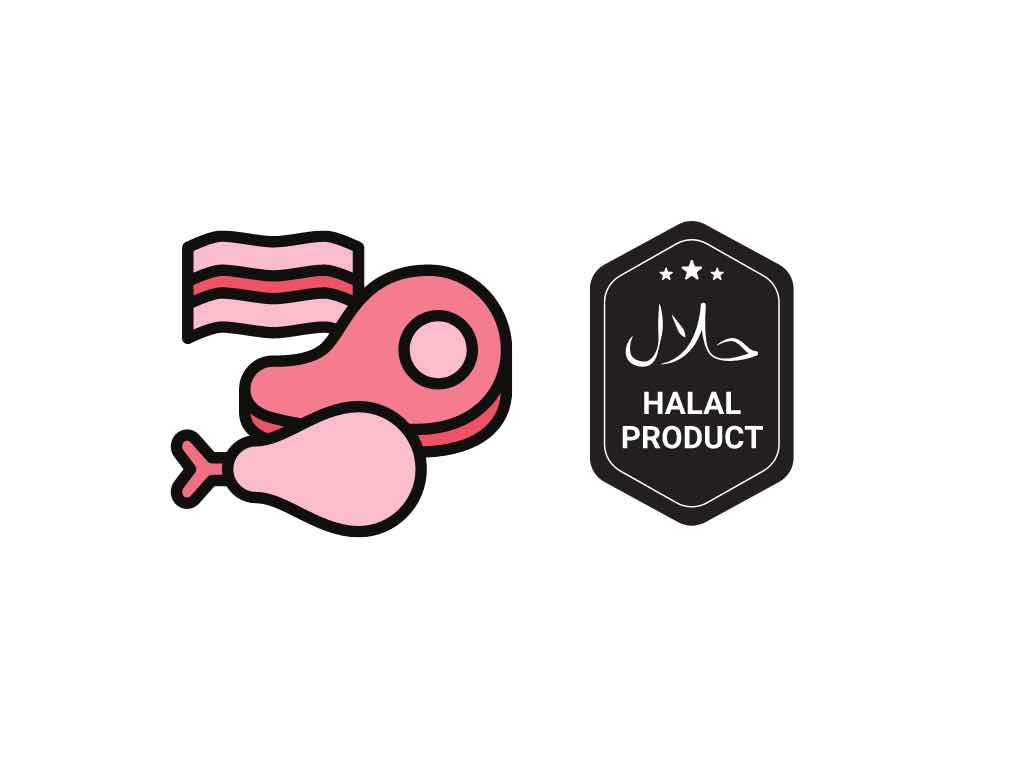
Approved Muslim Meat: A Guide to Halal Meat Standards
|
|
Time to read 4 min
Welcome to One Stop Halal!
Written by: Najma A.
|
|
Time to read 4 min
Consuming Halal meat is a fundamental aspect of the Muslim diet, deeply rooted in Islamic law and tradition. For meat to be considered Halal, it must meet specific criteria in the Quran and Hadith. This blog will provide a comprehensive guide to understanding what constitutes Approved Muslim Meat, the significance of these dietary laws, the Halal slaughter process, and how to ensure the meat you consume adheres to Islamic standards. Additionally, we'll explore the benefits of Halal meat and practical tips for sourcing it.
Halal, meaning "permissible" in Arabic, encompasses anything that is allowed according to Islamic law. When it comes to meat, Halal signifies that the meat is permissible for Muslims to eat and has been prepared in accordance with strict guidelines.
The process of Halal slaughter, known as Zabiha, is designed to minimize the animal's suffering and ensure cleanliness and healthiness of the meat. Here are the key steps involved:
Welcome to your favorite butcher shop. We carry custom cuts of beef, chicken, lamb, goat, grass-fed beef, wagyu, deli, and more. We ship across the United States in 1-2 business days.
Halal certification is essential for ensuring that the meat you consume adheres to Islamic dietary laws. Certification agencies inspect and verify that the entire process, from raising the animal to slaughtering and processing the meat, complies with Halal standards.
Consuming Halal meat offers several benefits beyond religious compliance:
At One Stop Halal, you will find assorted collections of butcher cuts for various kinds of animals. All our products are locally harvested in the USA, ethically raised, and hand-slaughtered the old-fashioned way: by a man with a knife.
Finding and verifying Halal meat can be challenging, especially in non-Muslim-majority countries. Here are some practical tips to help you source Halal meat:
Look for reputable Halal certification marks on meat products. Some well-known certification bodies include:
These organizations ensure that meat products meet stringent Halal standards.
Visit local Halal butchers and markets that specialize in Halal products. These establishments are more likely to have a reliable supply of certified Halal meat.
Many online retailers like One Stop Halal specialize in Halal meat and deliver directly to your door. Ensure that the online store is reputable and certified by a recognized Halal authority.
Don’t hesitate to ask questions about the source and handling of the meat. Reliable suppliers and butchers will be knowledgeable about their products and willing to provide information about their Halal certification and practices.
There are several misconceptions about Halal meat that are worth addressing:
Understanding and sourcing approved Muslim meat is essential for maintaining a diet that aligns with Islamic principles. The process of Halal slaughter, the importance of Halal certification, and the ethical and health benefits of consuming Halal meat all contribute to a holistic approach to eating in accordance with one's faith.
By following the practical tips outlined in this guide, Muslims can ensure that their meat consumption is both Halal and Tayyib (pure and wholesome). The growing availability of certified Halal meat products makes it easier than ever to adhere to these dietary laws, whether shopping locally or online.

© 2025 One Stop Halal, Inc.